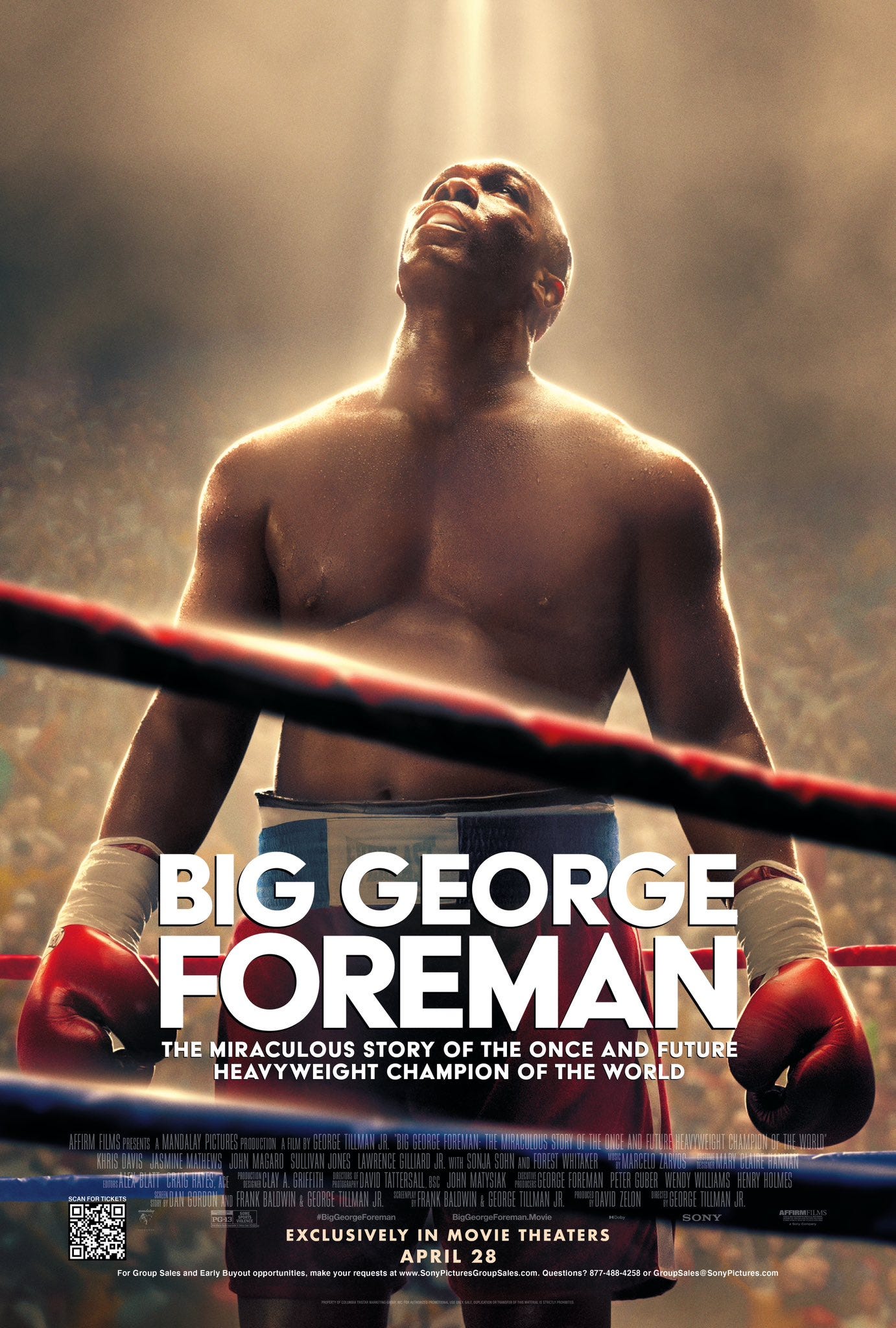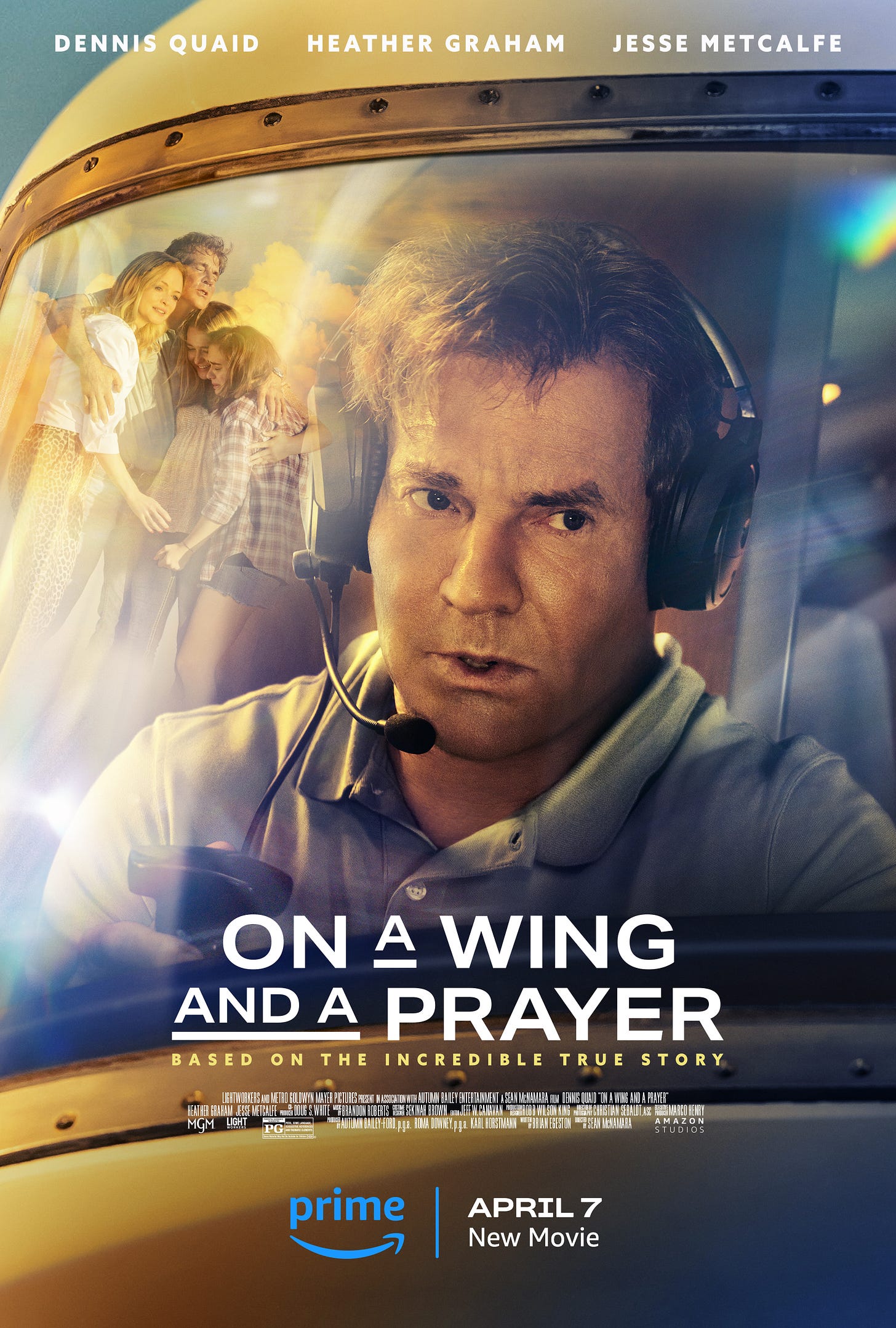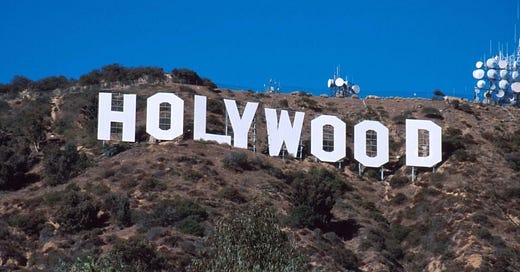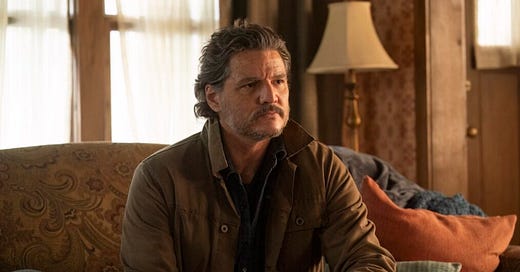
The Free Press

The projector shut off just as Keirstin Erickson started to tear up. She had been watching Jesus Revolution, waiting for the pastor in the movie to baptize the leading man in the ocean. That’s when someone ran into the room, saying that lightning had struck the theater. As the audience chattered among themselves, Erickson sat silent.
“I just remember having this burning sensation in my heart,” Erickson, a 22-year-old training to become a missionary, recalls thinking.
Suddenly she rose from her seat near the front, turned to face the rest of the audience, and introduced herself, asking: “Does anybody need prayer in this room?”
At first it was quiet. But then people started speaking up. A woman in the back confessed she had cancer. A mother revealed her two young sons were at prom that night and said, “Pray for my boys that they will grow up to be godly men, and make good decisions.”
A woman who said she worked with “kids on drugs” poured out her heart with a quivering voice.
“People with addiction are so misunderstood and so judged, and we have hundreds of thousands of kids, including my own children, that are now sober,” said the woman in a now-viral TikTok of the exchange.
“And I just would like you guys to pray for opening your minds to what exactly this movie showed,” she continued. “They’re just seeking something, and it’s God. Keirstin, you just give me hope, girl.”

These scenes, more common inside a place of worship, happened last month at Starlight Triangle Square Cinemas in Costa Mesa, California, at a screening of Jesus Revolution, a new movie depicting a real-life 1970s movement that saw thousands of hippies give up drugs for God. That crusade, led by Pastor Chuck Smith with the help of hippie preacher Lonnie Frisbee, coincidentally started at a Calvary Church just a few miles away from the theater where Erickson made her call to prayer.
Inspired by a 1971 Time magazine article about the movement (the codirector bought a copy of the magazine on eBay) and starring Kelsey Grammer as a straitlaced preacher and Joel Courtney as a hippie convert, Jesus Revolution is something of a Hollywood miracle: it’s a religious movie that’s actually a hit.
Made by Christian production house Kingdom Story Company and backed by mega distributor Lionsgate, the film earned back its $15 million budget the weekend it opened, when critics predicted it would gross closer to $6 or $7 million. That’s a triumphant performance compared to the weekend debuts of recent blockbusters, like 65, a sci-fi flick with a $91 million budget that made just $12.3 million, and M. Night Shyamalan’s thriller Knock at the Cabin, which brought in $14.1 million.
Since its release on February 24, Jesus Revolution has grossed $49 million in ticket sales—besting many of this year’s Oscar nominees combined at U.S. box offices.
Jon Erwin, the co-director of Jesus Revolution, told me his goal is to revive the multigenerational entertainment experience at the cinema.
“Now everyone has their own screen, everyone has their own sort of content, and you feel alone in your own home,” Erwin said. “I went to the premiere of the movie with my wife, my daughter, and our parents, and you have three generations loving the movie together. That is the most needed thing in entertainment right now, especially a story that centers around a set of values that I think is good for the world.”
Roma Downey, who runs LightWorkers Media, a faith-based division of MGM, agrees, saying Jesus Revolution “is a very good story, well-told. It didn’t hurt that they have the name ‘Jesus’ in the title. For Christians, that’s attention grabbing. It’s a provocative title.”
Christian colleges and church groups around the country have been pouring into theaters. One couple in Madisonville, Kentucky, bought out an entire day’s showings of the film earlier this month just so everyone in their town could see it for free.
Also, Downey said, “People are hungry for goodness, people are hungry for change”—especially after the pandemic. “For a minute it looked like the world as we knew it was coming to an end, then what were the things that were important? I think it helped people refocus on family, faith—those sort of values.”
Jesus Revolution marks the sixth—and most successful—movie from Kingdom Story Company, a partnership between producer Kevin Downes, producer Tony Young, and brothers Andrew and Jon Erwin to make Christian entertainment exclusively for Lionsgate. The Erwin brothers, whose stated mission on their website is “spreading the message of the Gospel through film,” first got Hollywood’s attention when their $7 million budget drama, I Can Only Imagine, grossed over $85 million in 2018.
Christians in Hollywood—no, not an oxymoron, just an endangered species—hope that its success means more Christian films will be greenlit. There’s a desire to give the faith-based audience “movies that they can embrace and enjoy,” says Paul Dergarabedian, a media analyst at Comscore, an agency that records metrics on film and TV viewership. “But you also have to be able to prove that you can make these films profitable to justify future investment. And Jesus Revolution really puts a fine point on that with its performance.”
Ever since Mel Gibson’s Passion of the Christ brought in over $600 million at box offices worldwide in 2004, studio executives have been trying to resurrect its success. In 2007, Sony launched its own faith-based studio, Affirm Films, which often teams up with Alex and Stephen Kendrick, the brothers behind profitable Christian movies like War Room and Fireproof.
Rich Peluso, who runs Affirm Films, says that Sony and other studios began investing more in faith-based movies once they saw that dramas like War Room—which had a budget of $3 million but made almost $74 million—could deliver massive returns.
“If they would have done Jesus Revolution five or ten years ago, they probably would have only been able to scrape up half the budget and it would have been half as good. For me that’s the change—that the studios, like for me, Sony Pictures, are willing to invest more. And whereas years ago, they weren’t. The budgets were much, much more modest.”
Late next month, Affirm is set to release its highest budget film yet, Big George Foreman: The Miraculous Story of the Once and Future Heavyweight Champion of the World, based on the true story of the boxer-turner-preacher and starring Forest Whitaker of Black Panther fame.

A-list actors now routinely star in films with religious storylines—like Mark Wahlberg, who played another boxer-turned-priest in the 2022 film Father Stu, and Hilary Swank, who’s set to headline Kingdom Story Company’s next project this fall, Ordinary Angels—a film about a Kentucky hairdresser who helps cobble together money for a young girl’s liver transplant. Jesus Revolution undoubtedly got a boost from its star, Kelsey Grammer, famous for TV hits like Cheers and Frasier, and his costar Joel Courtney—a teen heartthrob who previously starred in The Kissing Booth, a successful mainstream teenage comedy on Netflix.
Angel Studios, a crowdfunded production house that has raised tens of millions, has also popped up to meet the demand for Christian content. Episodes of its streaming series The Chosen, a dramatic retelling of the life of Jesus, have been watched over 450 million times since 2019, when the first season became available on the show’s free app—but many studio executives, including Jared Geesey, who now oversees distribution at Angel Studios, initially passed on investing in the show.
“Everyone was passing on it, both in Hollywood and the faith industry because the model for Christian television was kind of broken and couldn’t really fund a show like that,” Geesey told The Free Press.
Now, he says Angel Studio’s crowdfunding business model bypasses the “gatekeepers” of Hollywood, since its thousands of investors—ordinary people—vote on which projects to greenlight.
On March 31, Angel Studios will release its first film in theaters: His Only Son, a biblical drama covering God’s command that Abraham sacrifice his beloved child. The filmmaker, David Helling, is a Marine veteran who put himself through film school on the G.I. Bill after returning from Iraq, and edited the film himself, completing its special effects and even designing the costumes.

“It looks like ten times the budget,” Geesey says. “It’s this little indie film that again, nobody would’ve picked this up in the traditional model.”
Currently 1,900 screens are scheduled to show the movie across the U.S., but he says they’re adding new theaters to the rollout every day.
Meanwhile, Roma Downey, who runs LightWorkers Media with her husband Mark Burnett, the creator of Survivor, is releasing a new Christian film on Amazon Prime called On a Wing and a Prayer, starring Dennis Quaid and Heather Graham, on April 7.
That doesn’t mean that Hollywood has entirely made its peace with Christianity. On March 11, actor Rainn Wilson, most famous for his role as dweeby Dwight in The Office, tweeted about “an anti-Christian bias in Hollywood,” referencing the arc of a cult-like preacher on HBO’s zombie series The Last of Us.
“As soon as the David character in ‘The Last of Us’ started reading from the Bible I knew that he was going to be a horrific villain,” Wilson tweeted. “Could there be a Bible-reading preacher on a show who is actually loving and kind?”
Jon Erwin, who co-helmed Jesus Revolution, says Hollywood’s contempt for faith-based entertainment is something he’s talked about with famed horror producer Jason Blum. Erwin says the two have bonded over “serving” audiences the film industry often overlooks.
“One of the things we really talked about was the idea that ... an audience can feel disdain,” Erwin told me. “Certainly a faith audience at times feels disdain, and oftentimes any portrayal of a religious figure in a television show is negative. There are very few positive portrayals.”
David A.R. White, founding partner of Pure Flix, a Christian streaming service that Sony acquired in 2020, says he remembers sitting on his curb in Los Angeles with Downes, the Kingdom Story Company producer, decades ago, thinking: We can do better than what’s out there. A young actor at the time, White was used to seeing Christian movies with low budgets and poor scripts.
“We were just thinking and dreaming going, ‘Someday, wouldn’t it be cool if the studios had faith divisions, and these movies were able to be in theaters, and people would look at it as an actual genre?”
He would go on to produce the God’s Not Dead franchise, which White called a “massive breakthrough” when the first film came out in 2014, racking up over $60 million in ticket sales from a $1.1 million budget. Many film critics later called 2014 “the year of the Bible.”
White points out how many Americans go to church—about two-thirds of Americans identify as Christian, with about two-thirds saying they attend church at least monthly, according to the most recent data.
“That’s a lot of people,” White says. “So to not have any faith-based movies, or even say it’s a genre, I don’t think it was fair. I thought it was just a marketplace that needed to be filled. And that’s really where our passion was fueled to change the way Hollywood looked at these faith films.”
Back in Costa Mesa, Keirstin Erickson says Jesus Revolution is sparking a movement beyond theaters. After her screening ended, a group of college students came up to her in the hallway, crying, asking if they could pray together.
“They were telling me that because they saw me call strangers to prayer they believed that they could also stand up for what they believe,” says Erickson. “And that they could help their generation.”
“People were amazed and inspired by the movie, but it also sparked a revelation, that revival is happening right now,” she added. “And that we’re living in it, and anybody can be a part of it.”
Read Olivia’s recent piece about the Asbury revival in Kentucky here. Follow her on Twitter: @Olivia_Reingold. And send tips her way: olivia@thefp.com
And to support our journalism, become a Free Press subscriber today:















I wrote a comment that did not get published. It wasn't rabid; just rational. Didn't realise this was censored.
The difference is that I can enjoy the new D&D movie (though alas it lacked a certain something) and still walk out aware that magic doesn't exist (alas) and it's all enjoyable rubbish. I cannot believe in something because I badly want to believe in it. Religion baflles me. Maybe when I am (intellectually) decrepit I'll be able to take sustenance in such pap/twaddle. This Christian genre is just more fantasy, no?